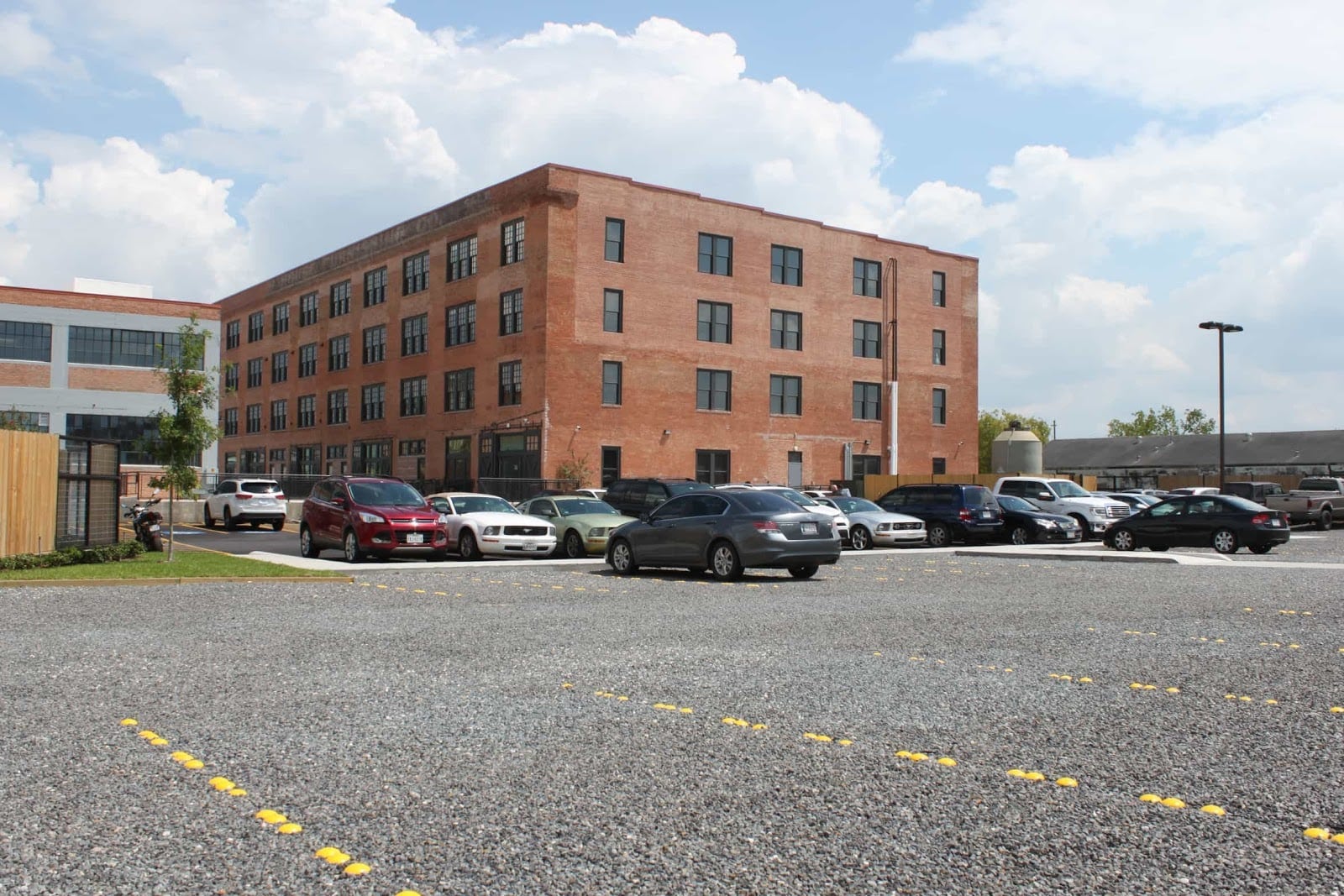
Almost every commercial business in America uses pavement of some sort. Pavement plays a vital role in building the sidewalks, pathways, driving lanes, and parking lots that accompany most buildings. There are many different types of pavement, all with their own strengths and weaknesses.
Depending on what kind of pavement you choose for your business, you can expect different maintenance requirements, installation costs, stylistic variety, durability, and other outcomes that can have a big impact on your business.
Getting your pavement right is very important, so let’s go over a complete breakdown of everything you need to know when it comes to commercial paving.
Common Types of Commercial Pavement
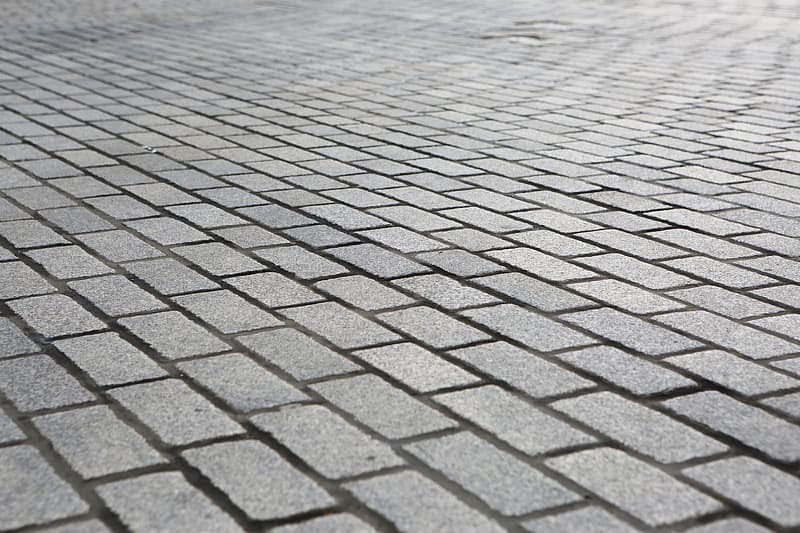
The most commonly used commercial paving materials are asphalt and concrete. The majority of parking lots and other paved areas around businesses are built with one or both of these materials. There is also permeable pavement, which combines pavers with aggregates like gravel to provide a stable, 100% permeable surface.
For pathways and other small paving needs, bricks, quartz,marble, and other options are available as well.
Asphalt
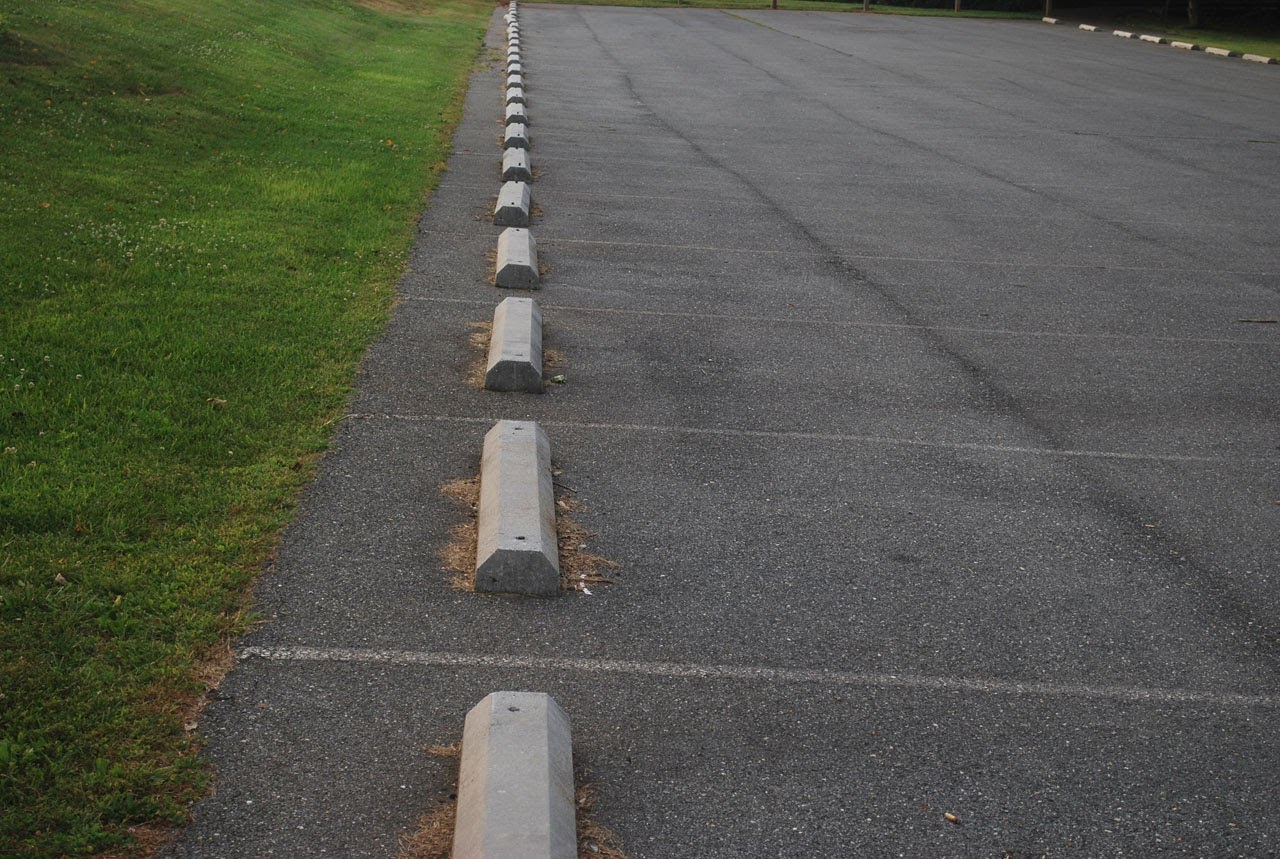
The most common type of asphalt is dense-graded asphalt, also known as hot-mix asphalt. There is also porous asphalt, which is semi-permeable and allows a certain amount of water to drain through it. Though not as effective as and much more fragile than permeable pavement, porous asphalt can help reduce splashing as well as tire noise.
Another type of asphalt pavement is known as “tar and chip”. This is a less refined version of asphalt and uses crushed gravel compacted into still-wet asphalt. Tar and chip pavement has a rough surface and doesn’t hold up well in extreme temperatures. It also unravels easily, leading to higher maintenance costs in the long-term.
For this reason, hot-mix asphalt combined with a drainage system of some sort is what most business owners use for commercial paving. A hot-mix asphalt parking lot can cost anywhere from $10,000 to $700,000 to install, depending on the size. The average asphalt lot costs about $75,000 to install.
Asphalt lot maintenance is extensive. To keep your asphalt lot in top shape, it needs to be repaved every 10 to 15 years, which can cost up to $2.50 per sq ft. If your lot needs to be resurfaced, that will cost up to $5 per sq ft. There is also the cost of lot striping, sealcoating, parking lot lights, and other miscellaneous factors to consider, such as snow removal.
Lot stripes cost about $5 per every 18 feet of striping. Sealcoating costs about $0.25 per sq ft. Lot lights can cost over $1,000 per light. Bumpers cost around $100 a piece, and spot sensors can cost as high as $600.
The load capacity of asphalt is less than that of concrete or permeable pavement, so you need a thicker lot if you want it to be able to handle heavy traffic and bigger vehicles. In hot climates asphalt does not wear well. Asphalt is almost entirely limited to black, with yellow or white lot lines.
A drainage system such as a sloped lot, and drains leading to local city sewers, is also required for an asphalt lot. The price is about $35-$45 per linear foot. Some businesses are required to have an entire water detention pond, which costs even more.
Concrete
Concrete is stronger than asphalt, but more expensive as well. There are a wide variety of different types of concrete, but most of them are used in very specific situations and not for general commercial paving. The main type of concrete used in commercial paving is standard ready-mix concrete.
The average concrete lot costs around $4-$7 per sq ft to install, which includes the cost of both labor and materials. Concrete needs to be resealed every 2-5 years, which can cost up to $2 per sq ft. Resurfacing concrete to extend its lifespan beyond the expected 30-40 years will cost up to 5$ per sq ft.
Pervious concrete and asphalt still need additional drainage to handle all the runoff they get from storms.Pervious concrete clogs easily and needs frequent vacuuming with specialized equipment to maintain its porosity. e. A concrete parking lot drainage system costs about the same as an asphalt drainage system. Pervious versions of asphalt and concrete can reduce the need for drainage, but not eliminate it.
Average asphalt and concrete parking lots can take anywhere from 2 to 4 weeks to complete. Concrete is stylistically limited, but offers more options in terms of graphics and markings that can be painted onto its surface.
Permeable Pavement
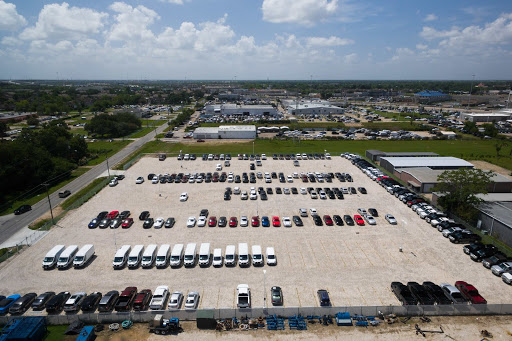
Permeable pavement is a commercial paving option that is taking the world by storm right now. It’s superior to asphalt and concrete in terms of durability, cost, installation time, maintenance requirements, eco-friendliness, and overall efficiency. Some companies, like TRUEGRID, make 100% recycled plastic pavers, which is one of the most eco-friendly paving materials you’ll find anywhere.
A permeable paver parking lot can be completed in a few days, costs less per sq ft to install. It requires only a basic excavation, a simple snapping-together of the pavers, and a compaction of the aggregate into the surface of the pavers with a heavy vehicle.
TRUEGRID permeable paver lots require no additional drainage because they allow liquids to drain right through them and into the soil below. This reduces the burden on local stormwater systems and allows commercial business owners to use 100% of their allocated land for parking, rather than having to incorporate drainage as well.
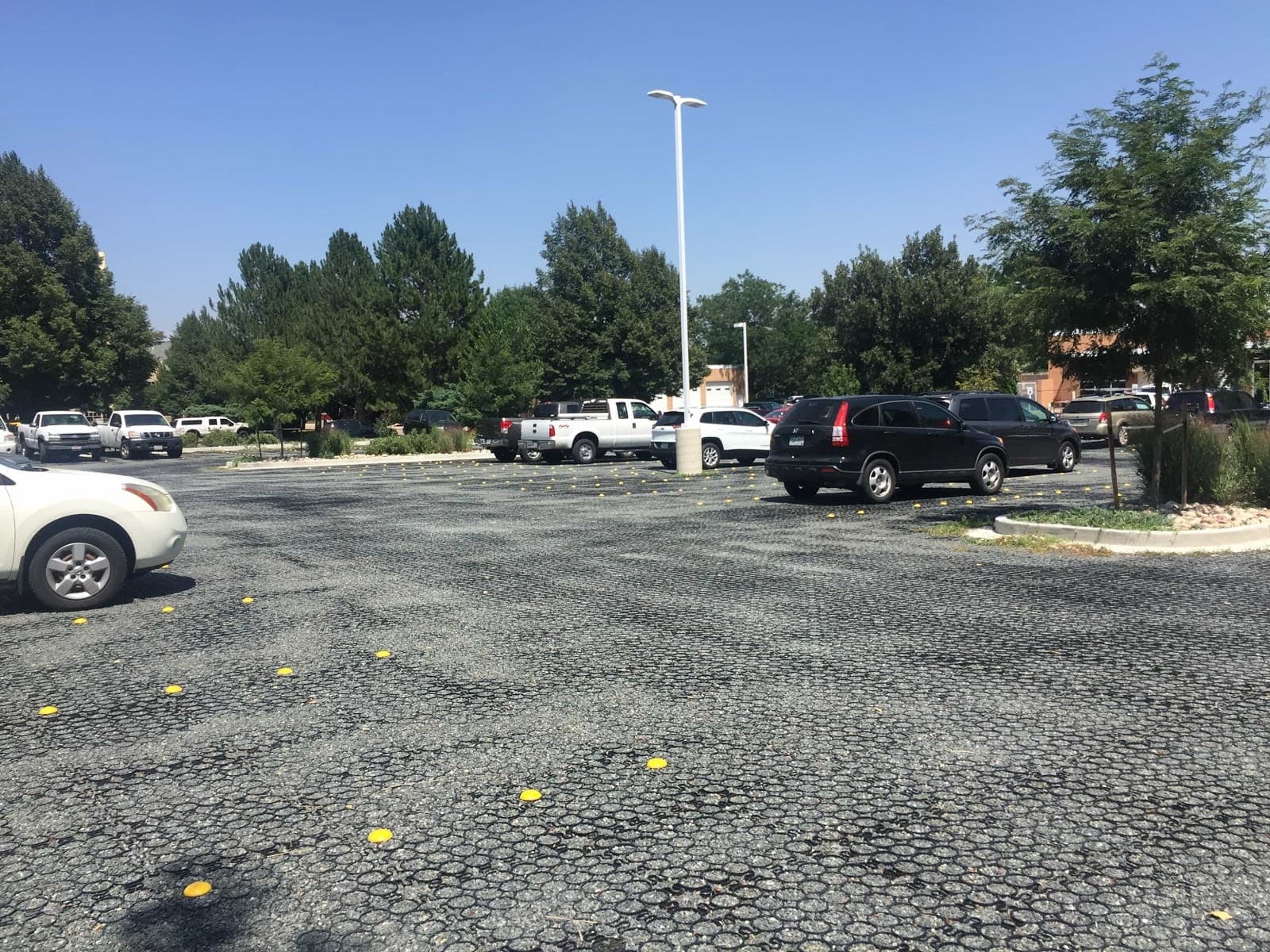
TRUEGRID pavers are more durable than asphalt and concrete in the short and long-term. Their load capacity is rated H20 and H20+ allowing them to handle the heaviest vehicles with ease.
The cost to install a TRUEGRID permeable paver commercial lot is up to 50% less than the cost of concrete. It costs about the same as it does to install an asphalt lot, but with almost none of the associated maintenance costs.
Permeable pavers from TRUEGRID will not contribute to a “heat island” effect and can even get you LEED points. Gravel-filled pavers are also much easier on the axles and wheels of fleet vehicles, leading to lower long-term maintenance costs for them as well.
TRUEGRID also offers SnowSpots™, SuperSpot® parking markers, reflectors, and stepping-stone pavers for your various needs when it comes to design and safety.
The Right Commercial Pavement Strategy Can Go a Long Way
Whether you opt for asphalt, concrete, or permeable pavers, making the right decision for your business parking lot is crucial. In addition to planning for optimal traffic flow and a lower risk of accidents occurring, you also need to decide whether you want permeable or impermeable commercial paving.
Impermeable or semi-permeable pavement like asphalt and concrete require frequent maintenance and additional drainage systems as well. Permeable pavers from TRUEGRID are a non-traditional look, but they offer superior durability, stylistic diversity, affordability, and eco-friendliness.
For more information on permeable pavers and a custom quote for your commercial project, contact a paving expert at TRUEGRID today.



